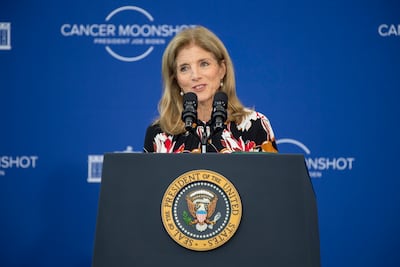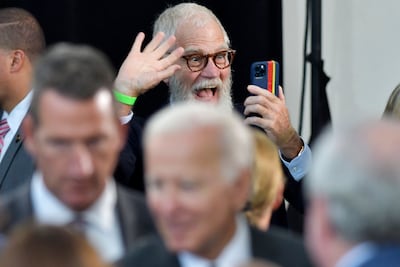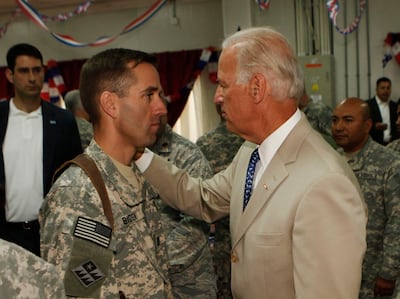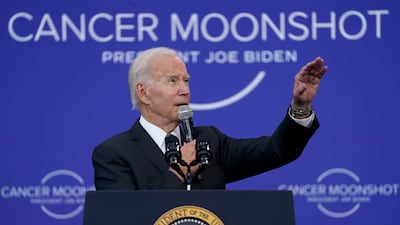Marking the 60th anniversary of John F Kennedy's moonshot address, President Joe Biden said the US must use its resources to "end cancer as we know it".
Harking back to Kennedy's pitch to land a man on the Moon, Mr Biden promoted his administration's plan that "is bold, ambitious and, I might add, completely do-able".
The president, who lost his son Beau to cancer in 2015, presented a new government-backed study aimed at identifying blood tests for the detection of at least one form of cancer.

If successful, it would provide a less-invasive way of detecting cancer early, the White House said.
"The cancer moonshot is one of the reasons why I ran for president," Mr Biden said at the John F Kennedy Presidential Museum and Library in Boston, Massachusetts.
More than 1.9 million new cancer cases will be diagnosed in the US this year, the American Cancer Society forecasts. Breast cancer was expected to lead new diagnoses with more than 290,000 cases.
The American Cancer Society also projected 609,360 cancer-related deaths to occur in the US in 2022, or about 1,670 a day.
Mr Biden said in February that he hoped to cut cancer death rates in the US by 50 per cent within the next 25 years.
“Today, we have many of the building blocks needed to make significant progress combating cancer but we must come together to equitably deliver on this promise,” the White House said on Monday.

As part of his address, Mr Biden will also sign an executive order establishing an initiative to ensure innovative technology designed to eradicate cancer is manufactured in the US.
His 'cancer moonshot' drive was designed to invoke Kennedy's space programme, which received significant public backing.
But Mr Biden's cancer programme is more modest and relies on private investment.
"When president Kennedy committed to putting a man on the Moon and bringing him back, the President … had the building blocks to know what was possible,” White House press secretary Karine Jean-Pierre said.
“Today, we have many of the building blocks needed to make significant progress preventing, detecting and treating cancer.

Efforts to reduce deaths are set to focus on lung cancer. Mostly attributable to smoking, it causes more cancer-related deaths in the US than any other, the American Cancer Society said.
More than 130,000 people this year are expected to die from the disease.
The American Cancer Society says lung screening has helped to drive down the cancer death rate by 32 per cent from its peak in 1991 to 2019, the most recent year for which numbers are available.
But only 5 per cent those eligible are being screened for lung cancer.
"We don't do enough to help patients and families navigate the cancer-care system," Mr Biden said.
"There's bewilderment, feeling of being on your own, frustration as hospital said doctors can't easily share your medical records."
He said that in detection, every minute counts.

























